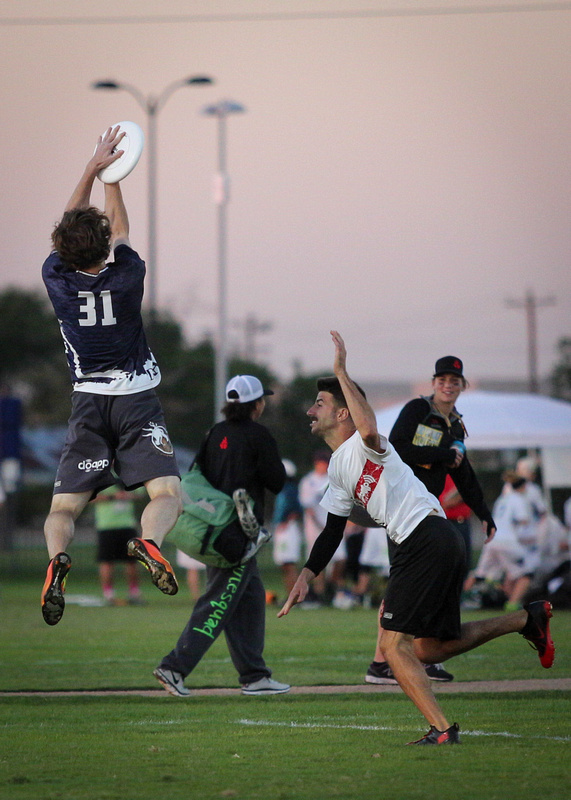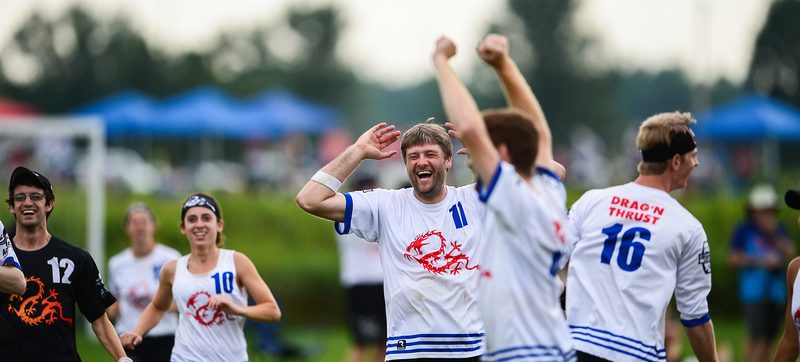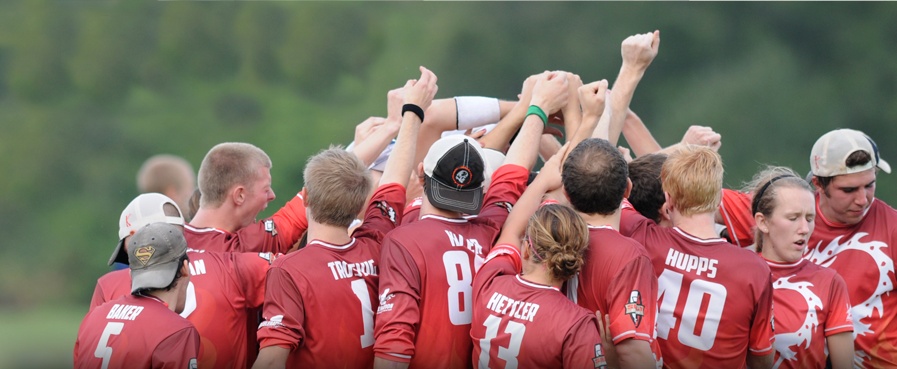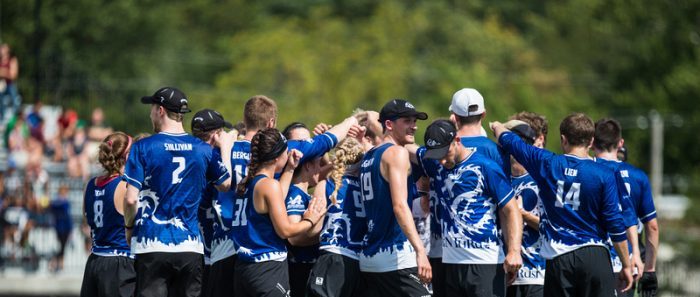By Jane Lucas
There comes a point in each Ultimate player’s life where we have to ask ourselves: How much of my time and effort am I truly willing to commit to this sport? Am I going to push myself to aim for that better team and higher performance, or is my life just too full to fit it all in? I may be naïve in thinking this, but I don’t know of many sports that have the dedication of individuals well into their working adult lives. This is one of the more impressive things about our sport, but it also comes with big questions on how to manage the work-life-ultimate balance. I write to share my own experience with Drag’n Thrust and hope that it may help those of you with similar struggles.
My Story
The 2013 season was my first year on Drag’n Thrust. Clearly, it was a pretty good year to join the team, but our success did not come without a lot of effort both on and off the field. As I approached the 2013 season, I decided that I really wanted to give my time to ultimate that summer and push to be on the best team possible. This was not possible in previous years because my work required me to be abroad for a significant portion of the summer. But the 2013 season was different; I knew that it was quite possibly my last chance to play on a highly competitive team, as I was scheduled to start graduate school at the University of Oklahoma in the fall of 2013.

Photo by UltiPhotos.com
Now some of you may be thinking that the club ultimate season runs from May to the end of October, and that the school year begins in August. You may also be thinking Oklahoma isn’t exactly close to Minnesota, 844 miles away to be exact. Alright, well maybe I am the only person who has ever really had that thought process. But playing on a competitive team like Drag’n requires high dedication and commitment, which meant that if I were going to play for this team I would be signing up for investing a lot of time, money, and effort just to be involved in practices and team activities. However, I decided it was worth some crazy scheduling in order to experience the top level a sport has to offer.
So my 2013 season consisted of 12 hour drives (each way) every other weekend in order to make practices. I also had the benefit of being able to play with the teams at OU during the week, which kept me in the ultimate mindset while I was away from my team. I moved my class schedule around so I had Fridays and Mondays off, and I worked with my advisor to work out the first couple months of school/sport conflict. It definitely took a lot of work committing to Drag’n but for me, the work was worth the reward.
I also owe a lot of my own personal success in this endeavor to my team and teammates. Being an out of town player is hard. You have to figure out ways of staying in shape without the support or enjoyment of being with all your friends. You also deal with the fact that your team is bonding and becoming closer, which can push you to feel more isolated than ever. However, Drag’n does a really wonderful job of keeping everyone engaged no matter where you are.
Tricks of the Drag’n Trade
First off, we all email each other about a million times a day. Some (most?) of the time these emails contain no real information of value, but nonetheless it keeps people engaged and creates a community. At other times though, our captains or coach will send personalized emails to examine strengths and weaknesses, and keep the whole team informed on the bigger decisions being made. This was incredibly valuable as a player who couldn’t be at everything; I never felt like the team was making decisions or changes without keeping me involved.
Second, we share our workouts with each other almost every day. This is a great way to motivate the teammates because no one wants to be seen as the “team slacker”. Even through the off season we continue to post our workouts, helping to show how dedicated individuals are to the sport and that just because the season ends doesn’t mean the team does.

Photo by UltiPhotos.com
Finally, we recap every practice. We get written accounts of everything we worked on and reiterate the key concepts. One of the biggest differences I saw in changing from elite flight to pro flight happened at practices. Not only was the level of competition within practices higher then I had ever experienced before, but so were the drills and conversations. We are no longer just learning basic cutting formation and handler cycling, but instead we are dissecting the game at each small step in an attempt to fine tune our play and strive towards perfection. This means that being at practice is really important, but so is remembering what was said. Having these recap emails is invaluable to any individual on our team, whether or not they live 10 minutes or 12 hours from practice. If you are looking to bring your team up to a higher level, then I highly recommend writing down what you want everyone to know. The mental game needs practice as much as the physical one.
In the end, I did give up some opportunities that would have furthered my career quicker in order to play ultimate. I have also given up opportunities in ultimate to further my career. For most of us that is just how it has to be. I love ultimate. When I reflect on my life I can truly say that I am happiest when I am at a tournament playing this game and interacting with all the other players around me. This is what motivates me to play this game even when it may not make sense to those around me. Everyone will have to come to their own conclusions as to how much they really want to commit to this game. But, if being happy is doing what you love, then the decision to just look for jobs in a city with a team you want to play for or to drive 12 hours across the US just to get in a practice or two will come easily. Yes, not everyone will understand the sacrifices we will make for this game, but isn’t life about doing what you love and loving what you do regardless of how crazy it may be?




